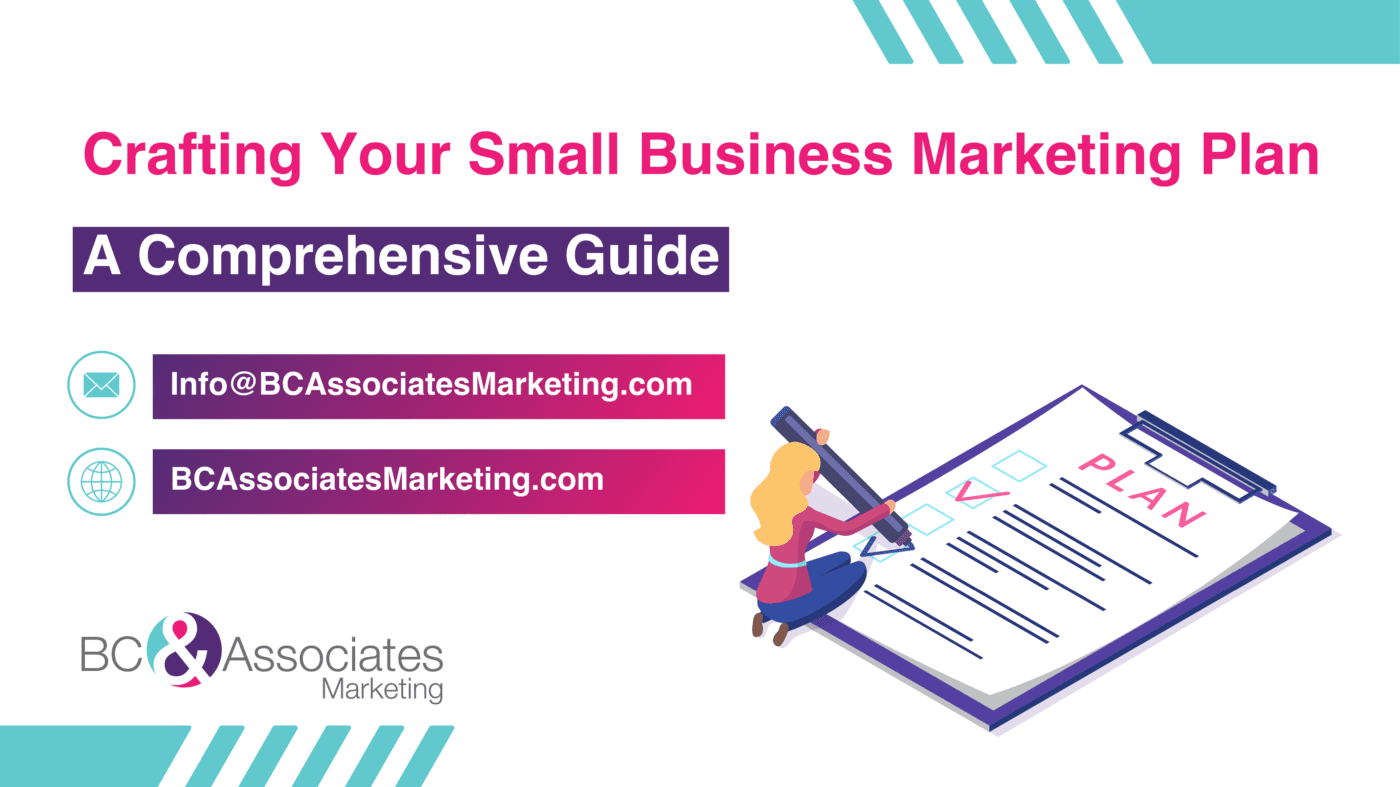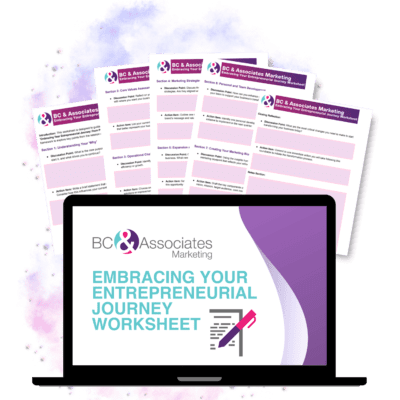In today’s fast-paced market, the importance of a well-structured marketing plan cannot be overstated, especially for small businesses aiming to carve out a space in competitive environments. A robust marketing plan sets the direction and pace for all your marketing efforts and ensures that they align with your overarching business objectives. As the best marketing agency, we’re here to guide you through assembling a practical and effective marketing plan, covering everything from essential components to best practices and common pitfalls to avoid.
The Essential Role of a Marketing Plan in Business Success
A marketing plan is a comprehensive blueprint that details a company’s marketing strategies and tactics over a specific timeframe. It outlines the planned advertising campaigns, promotional activities, and public relations efforts a business will employ to meet its marketing objectives. A clear marketing strategy and plan must be addressed. It ensures that every marketing action is purposefully aligned with the broader business goals, allowing for a coordinated effort across various channels and initiatives. This strategic alignment is crucial for optimizing the use of resources, maximizing return on investment, and driving targeted outcomes.
Moreover, a well-defined marketing plan provides a framework for tracking progress and measuring the effectiveness of different strategies. This enables businesses to make informed decisions, adapt to new market opportunities or challenges, and continuously refine their approaches. A clear and structured marketing plan is vital for steering the business toward growth and profitability. It acts as a navigational tool that guides the business through the competitive landscape, ensuring that marketing efforts are consistent and adaptable to the evolving needs and dynamics of the market. By investing in developing a solid marketing plan, businesses lay a foundation for sustained success, ensuring they remain focused and proactive in their marketing endeavors.
Essential Components of a Marketing Plan
- Executive Summary: This section provides a snapshot of the plan, highlighting key goals and strategies. It’s meant to give stakeholders a quick overview of what to expect and ensure everyone is aligned.
- Market Analysis:
- Market Research: Understand your market size, growth or decline dynamics, trends, and the overall economic environment.
- Competitor Analysis: Identify your competitors’ strengths and weaknesses and how you can leverage this understanding to carve out a competitive edge.
- Target Audience:
- Demographics and Psychographics: Clearly define who your customers are, including their age, location, buying behaviors, and lifestyle choices.
- Customer Needs and Preferences: Detail what drives your customers’ purchasing decisions and how your offerings meet their expectations.
- Unique Selling Proposition (USP): Define what makes your business stand out. This is crucial for crafting messages that resonate deeply with your target audience.
- Marketing Goals and Objectives: Set specific, measurable, achievable, relevant, and time-bound (SMART) goals. These should align with your broader business objectives.
- Marketing Strategies and Tactics:
- Channels: Decide which channels (social media, email, content marketing, etc.) will be most effective for reaching your target audience.
- Activities: Plan the activities and campaigns that will be executed, including budgets and timelines.
- Budget: Outline a detailed budget that allocates resources where they will be most effective in achieving your goals.
- Monitoring and Evaluation: Define key performance indicators (KPIs) and set up a system for tracking and evaluating your marketing efforts against your set objectives.
Best Practices
- Consistency: Ensure that your marketing messages are consistent across all channels. This helps in building a strong, recognizable brand.
- Flexibility: While it’s important to stick to a plan, be flexible enough to make adjustments based on what the data tells you.
- Integration: Your marketing plan should be integrated with your overall business strategy, ensuring that every marketing effort drives towards your business goals.
Biggest Mistakes to Avoid
- Underestimating the Budget: One common mistake is not allocating enough budget or underestimating the costs associated with marketing campaigns.
- Ignoring Customer Feedback: Not incorporating customer feedback into your marketing strategy can lead to missed opportunities and disconnected marketing messages.
- Lack of Testing: Not testing your marketing strategies on a small scale before a full rollout can lead to large-scale failures.
Secret Tips
- Focus on Content Marketing: Provide value through content marketing. Educational and informative content can help establish your authority in your industry and build trust with your audience.
- Leverage Local SEO: For small businesses, local SEO can be a powerful tool to attract customers in your vicinity. Optimize your online presence to ensure you appear in local search results.
- Utilize Marketing Automation: Use marketing automation tools to streamline your processes, improve customer relationships, and increase efficiency.
Putting together a comprehensive marketing plan is no small feat, but the right approach can significantly enhance your business’s ability to attract and retain customers. Remember, the key to effective marketing is understanding your audience deeply and meeting their needs innovatively and engagingly. Start with a solid foundation, remain adaptable, and always focus on delivering value, and you’ll see your small business grow and thrive in any competitive landscape.
Let’s Get Real!
We have crafted a comprehensive worksheet to guide your reflections and actions. Whether you want to refine your vision, align your values, or scale your operations, this worksheet is your first step toward transformative clarity.
P.S. Ready to spark your unique opportunities and ignite your marketing? Here are three ways to work with us.
1. 📞 Schedule a Complimentary 15-minute Call and let’s delve into your goals and answer any questions you may have.
2. 📘 Read Beverly’s book Marketing for Entrepreneurs a quick guide filled with actionable steps to help make your brand and business shine even brighter. 🎙️ Listen to Beverly’s Marketing Podcast where she interviews entrepreneurs to get inspired and gain new business and marketing insights.
3. 🎓 Learn more about marketing and Enroll in Our Marketing Courses designed to bring clarity to your business efforts. They’re easy-to-understand and self-paced, perfect for busy entrepreneurs like you.


